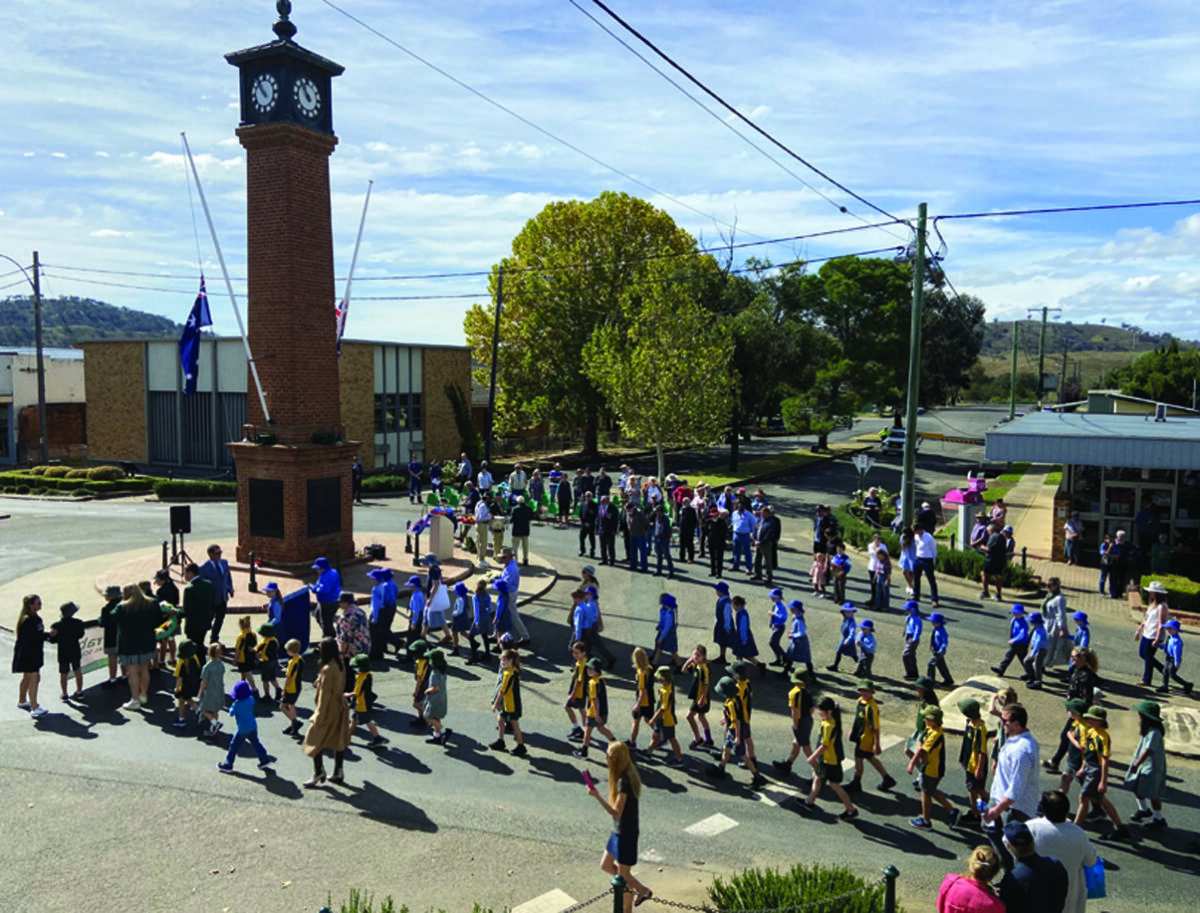
By Rev. Daniel Avenell – Barraba Anglican Parish
Both my grandfathers fought in the Great War. One in Gallipoli and the Somme; the other in Egypt. Though both were not religious men, under fire, prayer to God seemed entirely appropriate. One of my grandfathers never missed an Anzac Day celebration. He would march every year, and then retire to the RSL with his mates, and simply enjoy their company, and the Day. My other grandfather however, never went to the RSL and he certainly never attended or marched on any Anzac Day. He thought war was a painful memory and certainly nothing to commemorate or even remember. It’s not that he dismissed the war effort: he simply prided himself as a Stoic, and found no virtue in re-living adventures that got bigger every year with the re-telling.
My grandfathers were very different men.
Despite that, if they were alive today, then I suspect that they would both be very surprise, and even shocked, by the phenomenon Anzac Day has become. Anzac Day, some say, has become our national day: a Day that is much more than simply commemorative. Indeed it has taken on an air of holiness – it has become a sacred day. And a day, from which we as a nation, have borrowed so much of our national identity. And this should not surprise us.
Professor Tom Frame, who is director of the Australian Centre for the Study of Armed Conflict and Society, and former bishop to the Australian Defense Force, says this:
”If you hold to the view that human beings are comprised of body, mind and spirit, you would agree that a certain part of our being is not completely fulfilled by material objects or mental pursuits. People want a sense of the numinous, the transcendent, even the mystical. [And] for some Australians, the only experience they have of that each year, is commemorating the deeds of their family and friends who were touched by the experience of armed conflict.”
So has Anzac Day actually become a form of religion for many Australians? Has it gone beyond a commemoration? And has it become a shared or individual moment of spiritual awareness? As Frame goes on to say:
”Often, commemoration can be somewhat sentimental and mythologizing. Anzac Day gives many of us a profound experience, the kind of experience we won’t have at any other time of the year. On Anzac Day when we observe a minute of silence, we are left with our thoughts, and are confronted by our mortality; and that has a powerful effect. That’s why people regard it as a sacred day. A Day that needs to be preserved. And ‘sacred’ is not a word they would use for much else in their everyday life.”
And though I’m sure that Frame is right, I’m just as sure that both my grandfathers would be deeply troubled by any notion that their actions (and that of their digger mates) were in any sense sacred, or worthy of reverential awe. My grandfathers and nearly all of our forebears didn’t go to war with a burning sense of nationalism, let alone sacred duty. Mostly they went with a burning sense of adventure. And though many of them died while serving their country, they didn’t set out to do that, they set out to win a victory and come home. If they fought for anything, it was for their lives; for the lives of their mates beside them in the trenches, and for the hope of seeing their families again soon.
If my grandfathers were alive today, then I’m sure they would be grateful for the respect we afford our service men and women, but I’m just as sure that they would reject the adulation as much as they accept the commemoration.
As I said earlier; both my grandfathers were not religious men, but neither of them looked within themselves or to their mates for deliverance. For when it mattered most, both looked to God. For as is often said: ‘there are no atheists in the trenches’. And the God they looked to wasn’t generic. He was the God and Father of our Lord Jesus Christ. Jesus alone was human enough to bear with them their fears and their sorrows, their trials and their tribulations. And yet he alone was perfect enough to be the one true Saviour, who could raise them to eternal life – not just in their hearts and in our memories, but in reality and in truth.
So let us honour, our fathers and our forebears; let us honour, our armed service men and women; and let us honour, those who have died in the service of our country. Let us honour them, not by looking to them for a sense of the numinous, the transcendent and the sacred, but by looking with them, to the only one is able to bear that burden. And with them, let us pray: perhaps the only prayer that every one of our diggers knew by heart. Let us pray together as our Saviour has taught them and us:
Our Father who art in heaven, hallowed be thy Name. Thy kingdom come, thy will be done, on earth as it is heaven. Give us this day our daily bread, and forgive us our trespasses, as we forgive those who trespass against us. And lead us not into temptation, but deliver us from evil. For thine is the kingdom, the power and the glory. For ever and ever. Amen.


